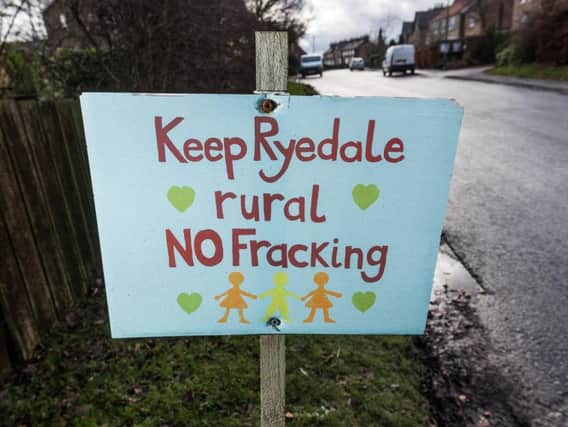Using coal reserves would be better than starting fracking in Yorkshire: Letters


In reply to recent letters from your correspondents over the last few days (Why UK needs fracking for its future and Readers argue for and against fracking) my duty as a district councillor is to defend the interests and amenities of ward and district residents and businesses.
Fracking, if allowed, will industrialise the Vale of Pickering and this will severely prejudice their interests, particularly the visitor economy.
Advertisement
Hide AdAdvertisement
Hide AdMost wind farms are built out at sea, away from the shipping lanes. Out there they are no problem to anybody, except perhaps, as navigation hazards for yachts and small vessels. This is far less harmful than onshore fracking in the open countryside where the draft North Yorkshire Minerals Plan would allow grids of two hectare fracking drill pads each spaced at distances of two and a half to three miles from each other in every direction.
However hard the industry pushes fracking, the fact remains that demand for fossil fuels is decreasing as non-fossil fuels take their place, and the only recent, properly-researched, authoritative, government paper on Security of Gas Supply (the BEIS paper of October 2017) makes it abundantly clear that there will be a plentiful supply of gas in the foreseeable future – without fracking.
However, let’s suppose this turns out to be wrong, that EU gas reserves decline and Mr Putin turns off the tap, that the price of imported gas goes through the roof, while our exported gas loses value, and climate change deniers are proved to be right. Would it then be necessary to frack for gas? Definitely not.
In the most unlikely event that there are energy shortages, the UK will always have limitless reserves of deep-mined coal.
Advertisement
Hide AdAdvertisement
Hide AdYes, coal is also a fossil fuel, but coal workings can run for tens of miles from a single pithead, and cause far less environmental harm than the sacrifice of thousands of square miles of our beautiful countryside to grids of fracking drill pads, each two hectares in size, and spaced between two and a half and three miles from each other (or even closer) in every direction.